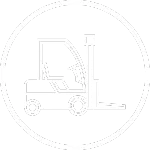Now Offering Spanish Safety Training!

Now Offering Spanish Safety Training!
Specialized Safety
HAZWOPER/HazMat/RCRA Training
FSDAVCFEBFEVSDDVFSD
FSDAVCFEBFEVSDDVFSD
FSDAVCFEBFEVSDDVFSD
Specialized Safety - HAZWOPER/HazMat/RCRA Training
Hazardous Waste Operations and Emergency Response Training

HAZWOPER, HazMat, and RCRA training equips workers with vital skills to manage hazardous materials safely and effectively. Participants learn the protocols for proper handling, storage, and disposal, ensuring compliance with OSHA standards. Hands-on exercises and real-world scenarios reinforce the knowledge needed to respond promptly to emergencies and prevent potential accidents.
This specialized training covers a broad range of situations, from chemical spills to safe waste management, all tailored to meet job-specific needs. Through comprehensive lessons, interactive simulations, and practical guidance, workers gain confidence in navigating hazardous conditions safely while maintaining compliance across diverse job sites.

Training Builds Confidence and Cation for Hazardous Work
Training for HAZWOPER, HazMat, and RCRA goes beyond theory, focusing on practical skills that workers need to handle hazardous substances safely. The curriculum includes interactive modules on chemical identification, spill containment, and emergency response procedures. These lessons are designed to help workers understand not only the dangers they might encounter but also how to mitigate them effectively. This hands-on approach encourages active participation, building both knowledge and confidence.
Training sessions also emphasize the use of personal protective equipment (PPE), teaching workers how to choose the right gear for specific tasks. Proper use of PPE is a critical aspect of minimizing exposure to hazardous materials. Workers learn the importance of routine equipment inspections and maintenance to ensure safety on the job.
Continual training updates are key to maintaining compliance with evolving regulations. As OSHA and environmental standards change, the program adapts to include the latest protocols. This ensures workers stay informed about new safety measures, helping them to respond promptly to emerging risks and maintain a safer working environment.
Refine Your Knowledge or HazMat Safety on the Job

Training for hazardous situations emphasizes practical skills that ensure safety across diverse job sites. Participants engage in realistic drills simulating various hazardous conditions. These simulations help workers understand the complexity of real-world challenges and improve their response skills. Techniques covered include chemical spill contamination, toxic fume mitigation, and proper decontamination methods. These targeted exercises not only boost awareness but also prepare workers to handle emergencies safely and effectively.
In addition to simulations, sessions focus on detailed procedures for handling hazardous materials. Workers are trained in proper storage, labeling, lockout procedures and disposal methods to prevent exposure. The training covers critical tasks such as waste segregation and identifying incompatible substances, ensuring compliance with safety protocols. By emphasizing these procedures, the program enhances worker confidence and supports adherence to industry safety standards.

Continuous evaluations of safety protocols are vital to maintaining high standards. Trainers consistently assess workers’ performance, making adjustments to strategies as new challenges arise. This dynamic approach ensures that safety measures are upheld even when job site conditions change. Regular feedback from employees is encouraged, allowing trainers to identify areas for improvement and refine the program to meet evolving safety needs effectively.
The adaptability of safety training plays a crucial role in keeping teams aligned with OSHA regulations. As new safety developments emerge, lessons are updated to ensure that workers are well-prepared for potential hazards. These updates also reinforce a proactive safety culture, promoting awareness and compliance across projects. By integrating the latest standards into the training, safety teams can confidently respond to risks, maintaining a consistent focus on protection and adherence to regulations.
Frequently Asked Questions
Frequently Asked Questions
What types of businesses require HAZWOPER, HazMat, and RCRA Training?
Businesses involved in operations that handle, treat, store, or dispose of hazardous materials or waste, including construction companies, manufacturing plants, and waste treatment facilities, require this training to ensure their employees understand how to manage hazardous substances safely and in compliance with OSHA and environmental regulations.
How often is HAZWOPER, HazMat, and RCRA Training required?
HAZWOPER training requires annual refreshers to maintain certification and compliance. HazMat and RCRA training frequencies may vary based on specific regulatory requirements and changes in job roles or hazardous materials handled, but typically also require periodic updates or refreshers.
Can HAZWOPER, HazMat, and RCRA Training be customized to specific business needs?
Yes, Nain and Associates offers customized training programs tailored to the specific needs and operations of your business, ensuring that your employees receive relevant and practical training focused on the hazardous materials and waste they encounter in their specific work environment.
What are the benefits of conducting HAZWOPER, HazMat, and RCRA Training for my employees?
Training your employees in these critical areas not only ensures compliance with federal and state regulations but also significantly reduces the risk of workplace accidents, environmental incidents, and potential legal liabilities. It enhances your company's safety culture, protects employee health, and contributes to environmental protection.
How does Nain and Associates deliver HAZWOPER, HazMat, and RCRA Training?
Nain and Associates provides these training programs through a combination of in-person sessions, hands-on exercises, and digital learning platforms. Our experienced trainers use real-world scenarios and up-to-date regulatory information to ensure that participants receive comprehensive education and practical skills in handling hazardous materials and waste operations safely.
Continuous Safety Improvements in HazMat Training
Regular updates are vital to keeping safety training relevant and effective. Trainers routinely adjust modules based on current safety standards, ensuring that workers receive up-to-date guidance. This ongoing revision prevents outdated practices and keeps workers aware of new hazards and potential risks in the workplace.
Training sessions prioritize interactive learning, making full participation the standard procedure. Through hands-on demonstrations and group discussions, workers develop practical safety skills that can be applied to real-world challenges. This approach not only enhances understanding but also strengthens compliance with safety protocols.
Feedback from trainees is crucial for refining training programs. Workers’ input helps trainers identify specific risks and tailor lessons to current site conditions. By adapting to this feedback, safety measures become more aligned with actual needs, making the training more dynamic and effective in addressing evolving safety demands.


Achieving long-term success in HazMat safety requires consistent evaluation and updates. Regularly revising protocols, driven by safety advancements and feedback from workers, ensures that measures remain both relevant and effective in real-world conditions. This proactive approach not only promotes a stronger safety culture but also supports continuous compliance with evolving regulations. Adapting to changes in worksite demands through refined safety strategies helps maintain protection for workers across different projects while reinforcing a commitment to lasting safety success.
Proactive Compliance With Hazardous Materials is Key
Achieving long-term safety compliance on hazardous job sites requires proactive measures. Workers need ongoing education that includes the latest safety protocols and regulations. By regularly updating training materials and refining procedures, safety teams can ensure that workers remain informed about emerging risks. This approach not only enhances individual awareness but also supports collective compliance across the entire workforce.
Effective communication among safety professionals, trainers, and workers is crucial for maintaining safety standards. Regular safety meetings allow for open dialogue, where employees can express concerns and suggest improvements. This collaborative environment encourages shared responsibility and creates a culture that prioritizes hazard prevention and continuous learning. By fostering strong communication, teams can better adapt to changes in regulations and worksite conditions.
Consistent evaluation of safety procedures and training sessions is key to sustaining compliance over time. Detailed assessments of training outcomes provide valuable insights into areas needing improvement. By analyzing data and refining strategies, safety teams can address gaps, tailor lessons to specific site conditions, and maintain regulatory alignment. Adopting this adaptable approach ensures long-term protection and a safer working environment.
Have Questions About Our Services?
Contact us to learn more today!
Have Questions About Our Services?
Contact us to learn more today!





